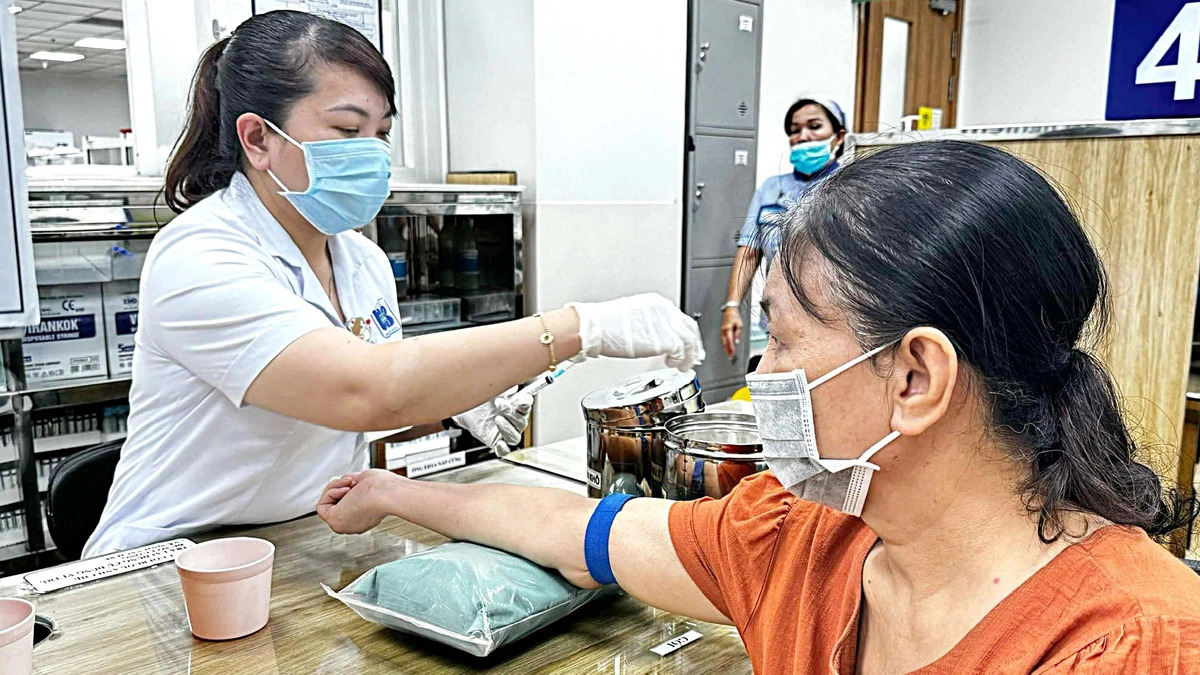The life expectancy of Vietnamese has increased, but elderly people have to live with non-infectious diseases for a decade on average, according to the Ministry of Health.
The ministry warned that since 2011, the population has entered the aging stage and is projected to become an aging society by 2036.
In this update, the ministry also highlighted the significant burden of non-communicable diseases as a major challenge during this demographic shift.
The average life expectancy of the Vietnamese population has surged to 74.5 years old from 65.6 since 1993, higher than many countries with the same per capita income, the Vietnam Government Portal reported.
But the average number of years that women live with illness is about 11 years, while it is around eight years for men, according to the health ministry.
Pham Chanh Trung, head of the Ho Chi Minh City Sub-Department of Population and Family Planning, said that Vietnam has been experiencing rapid population aging in recent years, placing it among the nations with the highest aging rates.
In 2023, elderly individuals, or those 60 years and older, made up 12.24 percent of Ho Chi Minh City's population.
The average life expectancy for the city's residents is 76.5 years, approximately two years higher than the national average.
One alarming statistic is that the average lifespan is higher than the average healthy life expectancy, meaning that elderly people have to live with different diseases despite their longer lives.
The municipal Department of Health reported that among a total of 233,000 elderly people in the city who had received health check-ups as of September, 57.6 percent suffered from high blood pressure, 23.3 percent from diabetes, 1.9 percent from suspected cancer, one percent from cancer, and 0.9 percent from asthma and chronic obstructive pulmonary disease.
Hypertension, once common among those aged 50 and older, is now being diagnosed in younger individuals, starting at 45, according to Dr. Nguyen Thai Yen from the Department of Cardiology at city-based Gia Dinh People's Hospital.
Contributing risk factors include a sedentary lifestyle, unhealthy diet, obesity, alcohol abuse, tobacco use, stress, and high salt intake, as well as neglecting regular healthcare.
Additional factors, such as improper or unhealthy diet and consumption of contaminated or fast food, also contribute to the rising number of hypertension diagnoses.
Dr. Do Kim Que, deputy director of Thong Nhat Hospital in Ho Chi Minh City, warned that the most common non-communicable diseases affecting seniors are cardiovascular issues such as high blood pressure, atherosclerosis, and diseases affecting the coronary, cerebral, and peripheral arteries.
These conditions are often followed by breast, liver, and lung cancers, diabetes, osteoarthritis, and other bone and joint diseases.
Dr. Que advised that all citizens, especially older adults, should have regular check-ups to focus on early detection of health problems, ensuring effective treatment and reducing the overall burden of disease.
Like us on Facebook or follow us on Twitter to get the latest news about Vietnam!




















































